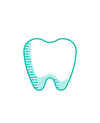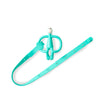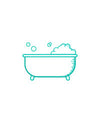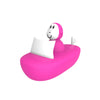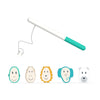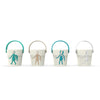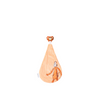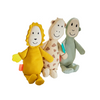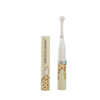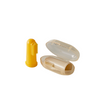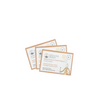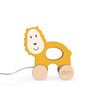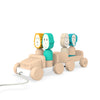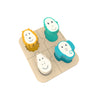The 8 First Signs of Teething
Ahhh, those first lovely weeks and months of teething. What joy… said no parent ever!!! I remember anxiously waiting for my first baby to start teething, worried that it wouldn’t happen. Oh how innocent I was. When it inevitably did, I sure was in for a rude awakening.
Some children’s teeth develop more quickly than others so it’s really hard to predict when it’s going to happen. Most children exhibit only a few of the symptoms (sometimes just one) so what is a sign of teething for one child may be completely different for another.
Often the start of teething can be mistaken for a fever, general grumpiness or a reaction to a standard procedure immunisation shot. This is an easy mistake to make because the symptoms of teething are so varied, it’s difficult to pinpoint the first signs unless you actually see a tooth, but we’ll talk about the 10 most common here…
Drooling a LOT
If you’re baby is producing way more drool than usual, maybe resembling a tiny Saint Bernard, this could be a sign that teething is beginning. Keeping a bib or two (or three or four) handy during this time may save your clothing and reduce the need for an abundance of tissues, which can cause a bit of a chafing feeling when cheeks are constantly being wiped.
Swollen or bulging gums
If you notice your baby’s gums are swollen or bulging slightly then this could be a sign that teeth are ready to start coming through. Make sure they have something safe to hold and chew on like a Matchstick Monkey teether to ease the pain and encourage those first teeth to start emerging. Gums can be really sore when tiny but very pointy little teeth are pushing through so you could also pop some teething gel onto the specially designed monkey’s head which will get right to the source of the pain!
A tooth visible below the gum
Call me obvious, but seeing a tooth lurking below the gum is the surest sign that teething is imminent… If they’ve got their Matchstick Monkey but still show signs of being in discomfort, try popping a bit of teething gel on the Monkey’s head so your baby can bite down on it to soothe and numb any pain.
Irritability
Irritability can be caused by a LOT of things when dealing with babies, sometimes by more than one thing at once. Standard procedure immunisation shots can sometimes seem to cause irritability as they’re given at the same time many babies tend to start teething. Even when we’re adults, certain immunisation shots can make you feel a bit “ick” but it’s hard to know when your baby can’t vocalise their feelings. If your child is feeling irritable, don’t automatically assume it’s a sign of teething. You could, however, you could try out a safe teether to see if your child does find some comfort!
Trouble sleeping
This symptom - you’ll already have realised - often goes hand in hand with irritability. There is nothing I can prescribe for sleeping that millions of experts haven’t done before me so I’ll leave this one with you. A soft natural fibre blanket and a room temperature of 16-20 degrees celsius seemed to help in my experience!
Trying to bite, eat, chew, suck & taste everything possible
When it comes to shoving things in their mouth, babies have no limits. Fistfuls of sand, items of clothing, your hair, anything particularly disgusting or dangerous they lay their tiny eyes and hands on… This is a stressful time, especially when you’re out of the house and say, on the beach (sand really can cause constipation!).
Rubbing the mouth, ears and face area
If your baby is rubbing, massaging, pulling at and poking her mouth and face area, it could be because she is about to start teething. Making sense of those strange, uncomfortable feelings of teething means your baby might try and explore the areas she or he can feel something stirring!
Saying “NO” to food
At this stage, saying “no” to food usually means either crying or chucking it onto the floor and pulling a “get that disgusting morsel away from me now” face. I’ve written about this before and kids can go through periods of being strange or changing their mind about what food they eat. This might not have anything to do with teething, but it could be because those teeth are starting to hurt or make your baby feel uncomfortable.
Remember that all babies are different so although some symptoms may be shared, just because your older child had certain symptoms, doesn’t mean all your children will.
At any stage in the teething process though, a Matchstick Monkey can really help you manage and alleviate some of your little one’s symptoms.

